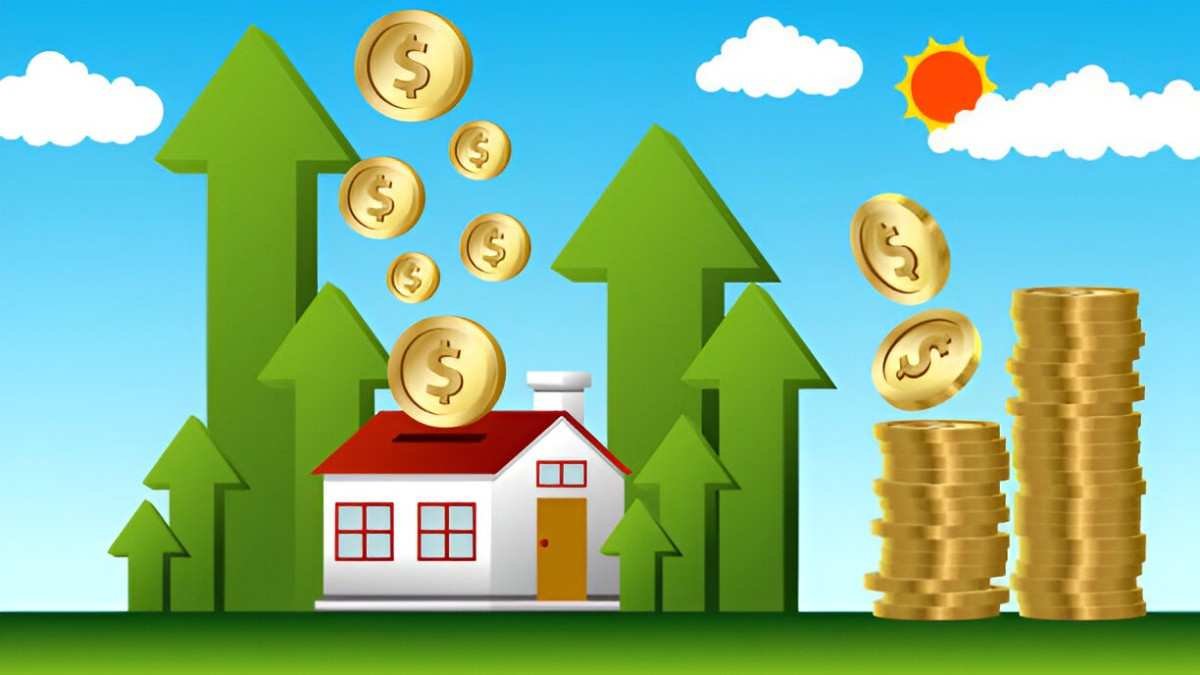Investing is a topic that has intrigued me for years, especially when considering which option is best: rental properties or the stock market. Both are widely regarded as solid investment avenues, but they come with distinct advantages and drawbacks. I’ve spent a lot of time researching, experimenting, and reflecting on these two, so I’d like to share my thoughts on the matter. If you’re caught between choosing one over the other, this article will help you decide by breaking down the key differences, advantages, and disadvantages.
Table of Contents
Rental Properties: The Tangible Investment
Rental properties are a popular choice for many investors. The idea of owning something physical, a piece of real estate, often appeals to those who want to feel in control. When you buy a rental property, you’re purchasing a tangible asset. You can physically touch it, walk through it, and make improvements. There’s something reassuring about owning land and buildings in a world that often feels uncertain.
Let me start by listing the key advantages that I’ve discovered when it comes to investing in rental properties:
1. Steady Cash Flow
One of the most attractive features of rental properties is the potential for a steady cash flow. If your property is well-managed and located in a desirable area, tenants will pay you rent on a monthly basis. This creates a predictable stream of income, which can be helpful, especially if you rely on that income to cover your living expenses or reinvest.
Example:
Let’s say I purchase a rental property for $250,000. I manage to secure tenants who pay $1,500 per month in rent. Here’s the calculation for my cash flow:
- Annual rent income = $1,500 x 12 = $18,000.
- If I subtract property taxes, insurance, maintenance, and other expenses (let’s assume $6,000 per year), my net income is $12,000 annually.
- This would mean a 4.8% return on investment ($12,000 / $250,000).
2. Property Appreciation
Over time, property values tend to increase. While this isn’t a guarantee, historical data shows that real estate tends to appreciate in value over the long run. The value of the property can be influenced by factors like location, demand, infrastructure development, and market trends.
For instance, if I buy a property for $250,000, and after 10 years, it appreciates by 3% annually, it might be worth around $335,000 by the end of that period. This is an increase of $85,000. It’s crucial to note that appreciation doesn’t always happen at a consistent rate, but in many markets, it’s a reasonable expectation.
3. Tax Benefits
Rental property owners can also benefit from tax deductions. There are numerous expenses related to owning rental property, such as mortgage interest, property taxes, insurance, and maintenance costs. These can be deducted from your taxable income, reducing your overall tax burden. Additionally, depreciation allows you to deduct the value of the property over time, further reducing taxes.
Let’s assume I earn $18,000 in rental income but have $6,000 in expenses and depreciation. My taxable income would be reduced by those $6,000, resulting in a lower tax bill.
4. Leverage
Another advantage of rental property investment is the ability to use leverage. When I purchase a rental property, I don’t necessarily have to pay for the entire property upfront. I can secure a mortgage loan and only pay a portion of the total value, while the bank provides the rest. With leverage, I can amplify my potential returns. For example, if I put down $50,000 on a $250,000 property, I’m controlling a $250,000 asset with only $50,000 of my own money.
However, leverage also comes with risks. If property values decline or rental income doesn’t cover expenses, I’ll still be responsible for the mortgage payments.
Stock Market: The Intangible Investment
Now, let’s shift gears and talk about the stock market. While rental properties offer tangible, physical assets, stocks are intangible, electronic assets. With stocks, I’m investing in companies, bonds, and other securities, and while I don’t have a physical entity to touch, I do have the potential for growth and diversification.
Here are some of the advantages that I’ve found with stock market investments:
1. Liquidity
One of the most compelling advantages of stocks is liquidity. If I need to access my money, I can sell my stocks quickly, often in a matter of seconds. Real estate, on the other hand, can take time to sell. If I own a rental property and need to liquidate it, I might have to wait months or even years to find a buyer, depending on the market conditions. This makes stocks a more liquid asset compared to rental properties.
2. Diversification
The stock market provides an opportunity for diversification in ways that rental properties simply can’t. By investing in a variety of stocks, I can spread my risk across different industries and regions. This can significantly reduce the volatility of my portfolio. For instance, if one stock underperforms, it’s likely that others will perform well, balancing my overall returns.
Example:
Let’s say I invest in a mutual fund that holds stocks in technology, healthcare, and consumer goods. If one sector underperforms, the others may offset the loss, ensuring that my overall portfolio remains stable.
3. No Maintenance Required
Unlike rental properties, which require regular upkeep and management, stocks require little maintenance. I don’t need to worry about property inspections, handling tenant issues, or dealing with repairs. This makes investing in the stock market a more passive activity. I can simply buy my stocks, hold them, and let them grow without being actively involved in their management.
4. Lower Entry Costs
Another advantage of the stock market is the lower barrier to entry. While buying a rental property might require tens of thousands of dollars for a down payment, investing in stocks can be done with as little as $100. This makes stocks a more accessible investment for those who may not have large amounts of capital upfront.
Rental Properties vs. Stock Market: A Direct Comparison
Here’s a simple table to illustrate some of the major differences between rental properties and the stock market:
| Factor | Rental Properties | Stock Market |
|---|---|---|
| Initial Investment | High (down payment, closing costs, etc.) | Low (can start with $100 or less) |
| Liquidity | Low (may take months to sell) | High (can sell within minutes) |
| Diversification | Limited (mostly one asset) | High (diverse stocks, bonds, etc.) |
| Maintenance | High (property management, repairs) | Low (no physical maintenance) |
| Risk | High (property values can decline) | Moderate (stocks can fluctuate) |
| Tax Benefits | Yes (deductions on expenses, depreciation) | Yes (capital gains tax advantages) |
| Income Stream | Regular (monthly rent) | Variable (dividends, capital gains) |
| Appreciation | Moderate (can appreciate over time) | High (stocks can grow rapidly) |
Financial Comparison
Let’s do a simple financial comparison. Imagine I have two options:
- Rental Property: Purchase a $250,000 property, earn $18,000 in annual rent, and have $6,000 in expenses. My net annual income would be $12,000, with property appreciation of 3% per year.
- Stock Market: Invest $50,000 in a diversified portfolio that earns 8% annually. My annual return would be $4,000, but with the potential for greater growth.
After 10 years, here’s how the two compare:
Rental Property:
- Property appreciation: $250,000 x 3% = $7,500 per year, for 10 years = $75,000.
- Annual rental income: $12,000 x 10 years = $120,000.
- Total: $75,000 + $120,000 = $195,000.
Stock Market:
- Annual return: $50,000 x 8% = $4,000 per year, for 10 years = $40,000.
- Total return: $40,000 in capital gains.
In this scenario, the rental property would give me $195,000 over 10 years, compared to $40,000 from the stock market. This doesn’t take into account the tax advantages or any potential leverage in the property, which could skew the results in favor of the rental property.
The Verdict: Which is Better?
The choice between rental properties and the stock market ultimately depends on personal preference and risk tolerance. If you value physical assets and prefer the stability of a steady income stream, rental properties might be the better option. On the other hand, if you’re looking for a more liquid, diversified investment with less maintenance, stocks might be the better fit.
From my experience, both options have their merits, but I lean toward rental properties for the cash flow and long-term appreciation potential, especially when I factor in the ability to use leverage. However, I understand why some might prefer the stock market’s ease of entry and flexibility.
In the end, the best investment strategy could be a combination of both—rental properties for stability and income, and stocks for diversification and growth.





